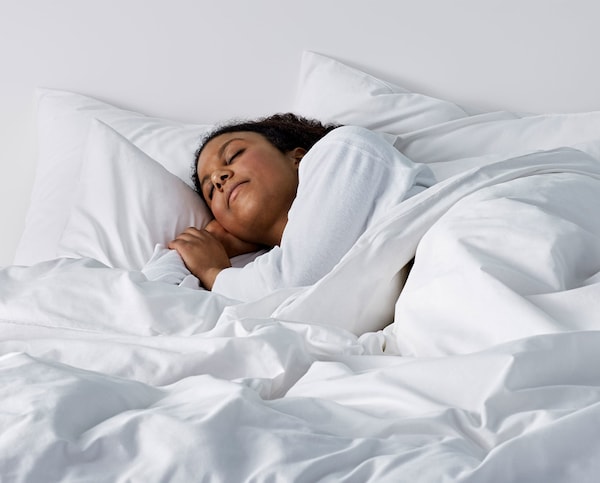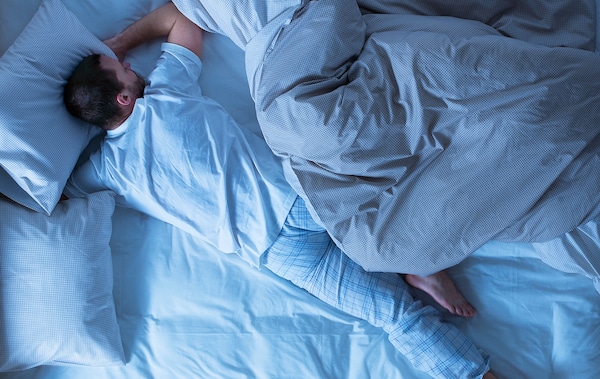3 ways temperature affects our sleep
Temperature plays a key role in how well we sleep – and not just because it can leave us feeling too hot or cold in bed. We all know the feeling of waking up in the middle of the night sweating because we’re too warm, or needing to find an extra layer because we’re too cold. But how exactly does our core body temperature impact the regulation of our sleep pattern?

The bedtime cool-down
The physical act of cooling down slightly helps send your body to sleep, and then warming up helps wake you up again. It’s partly why we often drift off more easily after a hot bath at night. A 1°C drop is required at the beginning of the night to help you fall asleep, and an equivalent rise is needed to help you feel more awake in the morning.

A climate for sleep
As tempting as it might be to crank up the heating in winter, keeping your bedroom cool is important for a good night’s sleep. Comfort is very personal and the ideal sleeping conditions will vary from person to person, but the optimum temperature is thought to be 16-17°C.

Consistency is key
Feeling too hot or too cold at night is likely to disturb your sleep and even wake you up. Whatever temperature you find comfortable, keeping your bedroom – and therefore your body – at a stable temperature throughout the night is essential to high-quality sleep.















